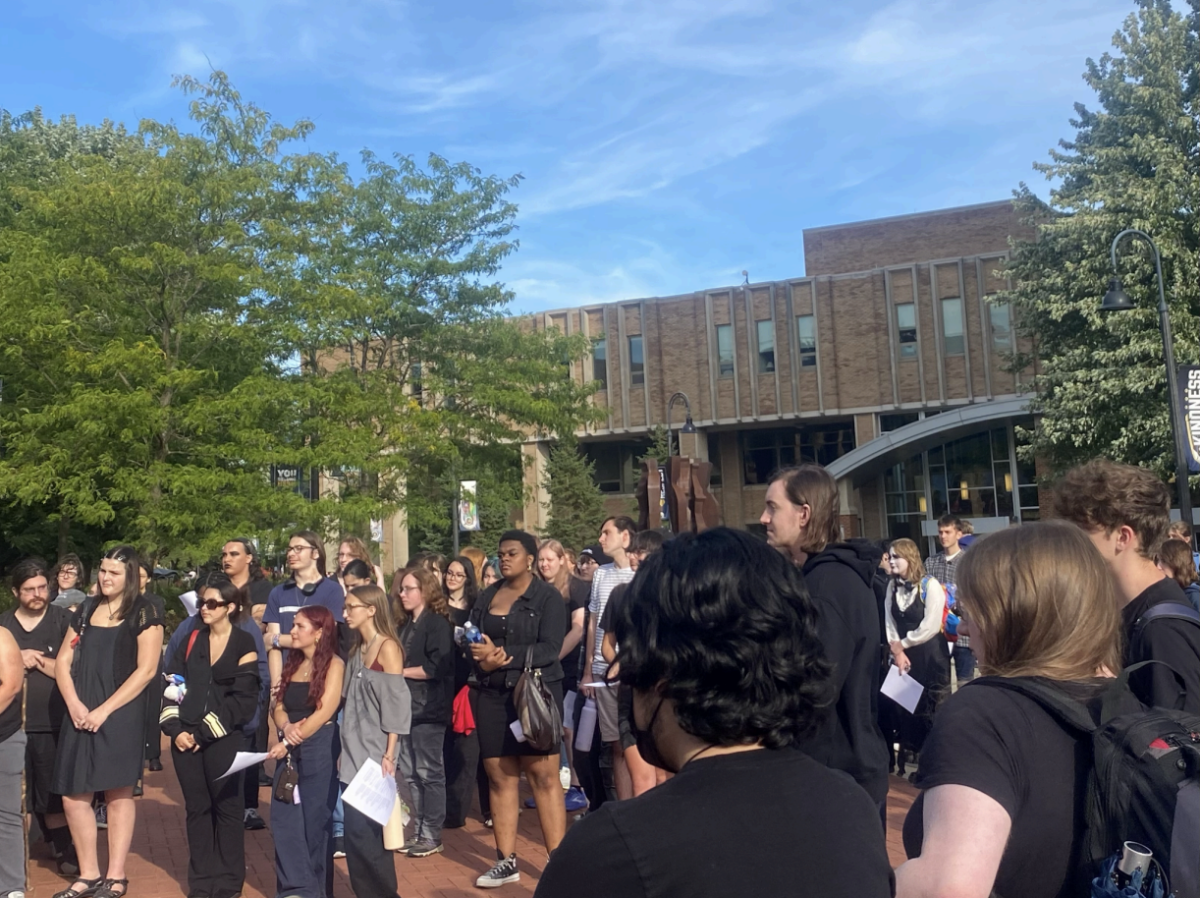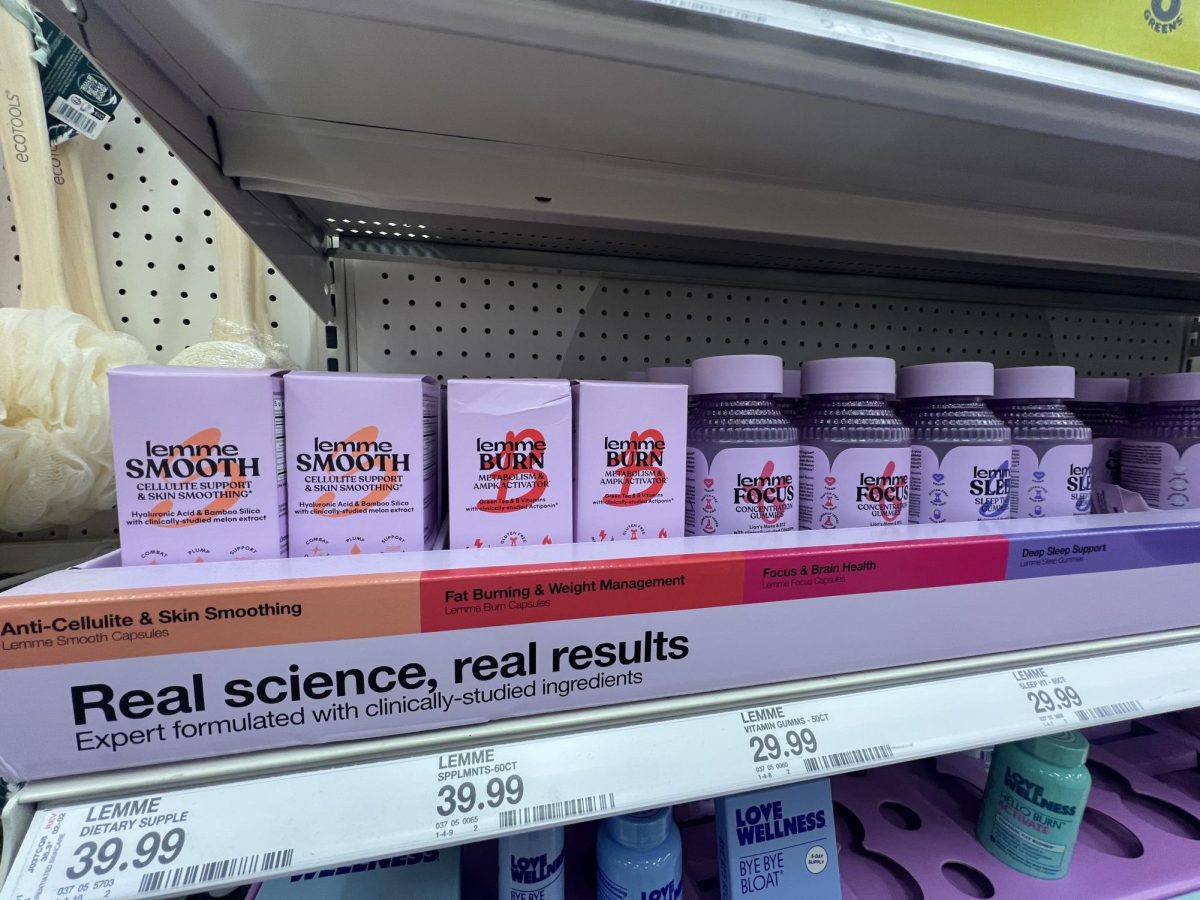
Eating healthy can be difficult, especially in college. We are on our own to decide what we should eat and what we shouldn’t. We are constantly surrounded by sweet treats, pizza, fries, sandwiches and not to mention, there is a whole downtown Kent with restaurants full of tasty food to choose from. With the seemingly nonstop workload we have, the stressful college environment, the fast paced life we live and no parental figures to tell us what to do, it can be challenging to control what we eat.
But college doesn’t have to mean the end of your balanced diet. In fact, it could mean quite the opposite. Most dining halls have a multitude of options of healthy foods you can choose from and this may even be the time and place in your life where you establish good eating habits. Here is our guide to eating healthier in college.
Eat in moderation
Sometimes, eating healthy may not mean changing what you eat, but rather how much you eat. When we are lounging in our rooms or hanging out with our friends, we may overeat without even realizing it. It is important to be aware of how much food you eat. Many dining halls serve nearly the same food each day, so there is no need to feel rushed into eating everything you like within a day. Sometimes, we just need to tell ourselves to cut back.
Find healthier alternatives
You do not have to give up foods you love to eat healthy. You can still eat your favorite foods, but for a healthier option, try to find a healthier alternative to that food item. Kent State dietitian Madison Jordan agrees that there are better options compared to others when it comes to the food we eat.
“Forming a healthy relationship with food is key for a healthy life,” Jordan said. “I do, however, believe there are ‘good,’ ‘better’ and ‘best’ options when it comes to choosing food. For example, a ‘good’ option would be a tuna salad sandwich on white bread a ‘better’ option would be a tuna salad sandwich on whole grain bread and a ‘best’ option could be having the tuna salad on top of healthy greens and loading the salad up with more vegetables.”
There are so many options out there, you may surprise yourself with the healthier alternatives you find.
Drink lots of water
Many of us underestimate the power of drinking a lot of water, yet it always works like a charm. Drinking water before meals can help prevent overeating because it gives us a better sense of when we are full. It can also help fill us up throughout the day. An easy way to remind yourself to drink water is putting reminders on your phone throughout the day or carrying a water bottle with you to each class.
Eat your fruits and vegetables
Eating our fruits and veggies is something we hear as kids, but it is also something many of us still struggle with. They are typically not the first thing that usually comes to mind when we want a bite to eat, yet they are very important for our daily diet.
“Fruits and vegetables should ideally make up about 1/3 of your diet per day,” Jordan said. “It is important to aim to consume five servings of fruits and vegetables daily.”
Fruits and vegetables may not be the most desirable of foods, but they go a long way with healthy eating. Not to mention there are other fun ways to eat them. One way to include fruits and vegetables in our diet is to use them as grab-and-go snacks. Most dining halls have a bowl full of fruit where we can easily take one as we head out. When we have food available in our hand or in our bags, we usually will end up eating it. Another way is to drink smoothies. Smoothies can be a great way of eating our fruits and vegetables because we can mix and match and have different add-ins.
Have easy on-the-go snacks
Don’t let that mini fridge and extra shelf space go to waste and stock up on some healthy on-the-go snacks. Many of us spend a considerable amount of time in our rooms and will eat whatever we have stocked up in our snack pile. With that in mind, we could start making a habit of shopping for healthier and easier room snacks whenever we make that monthly trip to the grocery store for food.
“Healthy snacks on the go and for keeping in your dorm room are essential because you are most likely to eat the foods that you surround yourself with,” Jordan said. “Keeping items like trail mixes, nuts, peanut butter, granola bars, oatmeal, whole grain crackers, popcorn or baked chips and items that are shelf stable are great. Hummus, yogurts, fruits and pre-sliced vegetables are all great ideas for your dorm fridge as well.”
With our healthier on-the-go snacks on hand, when that all nighter comes or those late night study sessions hit, we won’t be tempted to order pizza or Insomnia Cookies, but instead just pop that popcorn we have right next to us.
Don’t stress yourself out
You should not feel obligated to strictly eat healthy foods. All of us face cravings every now and then, and it is totally okay to eat that midnight snack or buy that carton of ice cream. Being healthy does not just mean what we eat, but how we feel. If that slice of pizza makes you feel better that day, then go for it. Don’t stress yourself out with following diets and restricting yourself. College is a time of figuring stuff out and that includes our diet. At the end of the day, you know your body best and only you can truly know what your body needs to have a healthy diet.











